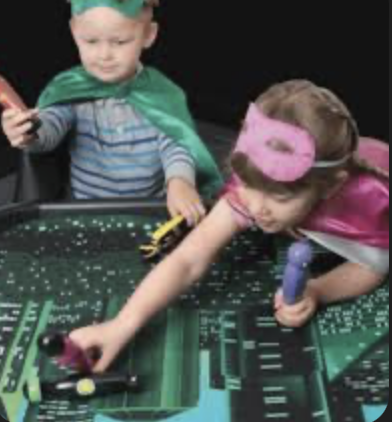

The schools are back and we might see the wee ones wend their way to and from school these days. The primary children look so small – or is it that I am getting older. Yes, I know the teachers look ever younger as well… What influence do children have these days? They are harangued for any societal misdemeanour or the media focussing upon young teenagers who have been prosecuted for criminal behaviour. Following the Olympics and Paralympics, we might recall some very young athletes being seen as the ‘best in the world’.
On the return journey
Jesus and three others (Mark 9: 9-13 – some would have said that they saw more people with them) have just descended from a mountain, and have ‘left that area’ to venture back towards Galilee. As we are just over halfway through the Gospel according to Mark, the disciples have also reached halfway and are on their return journey, eventually to Jerusalem. They are to return via Capernaum, their home base, where many of them used to live. They are, unbeknownst to them, re-entering the fray.
It might be prudent at this time to remind ourselves that Mark’s Gospel is the shortest of the four within the New Testament – other Gospels outside of the NT are even shorter. This Gospel does not purport to be a historical guide to the years of Jesus on Earth. It is Mark’s method of preparing those who hear his words of the suffering, death and resurrection of Jesus that is to come. We have three repetitions of what is known as the ‘passion prediction’: what is to occur to Jesus in Jerusalem. In Mark 8:31, Mark 9:31 and Mark 10.33, at Caesarea Phillipi, Galilee and eventually on the road to Jerusalem respectively, we have a similar story of the ‘son of man’ being killed and 3 days after he dies, he will rise up.
Just as Matthew’s Gospel picks up on the Hebrew Scriptures or Old Testament, Mark also does so, but to a much lesser degree. If only they had used footnotes… Here, we reflect upon Daniel 7: 13-14.

there came one like a son of man, and he came to the Ancient of Days and was presented before him.
Daniel 7:13-14
And to him was given dominion and glory and a kingdom,
that all peoples, nations, and languages should serve him;
his dominion is an everlasting dominion,
which shall not pass away,
and his kingdom one that shall not be destroyed.
It’s odd when we can quickly associate with what we believe is a NT phrase but it actually originates from the OT. There is a Greek word in the Mark passage relating to handing over, and in a very specific case, betrayal. Here, I look at this with respect to Judas. It is paradidomi. In Mark 9: 31 there is no reference to Jesus being handed over to the Chief Priests or the Scribes, but to men.
So, what is being told is that God will hand over, or deliver, the son of man into the hands of men, who will kill him. Ponder upon this, as Mark refers to this three times.
It reframes the reason why Jesus died perhaps.
Children
Jesus overhears the disciples discussing, not what he has just said, but about who will be the greatest. Note, that after this prediction of Jesus’ death, no one seeks any clarification or further questions the reasoning. Jesus stops the walking group and invites them to ‘take 5 minutes’ when he explains that success is seen by being the least of them. He then enacts a scene with a child. The word in Aramaic for child țalyā is the one which also refers to servant. We can focus in on that wee child who was going to school, but we then miss the point.
It is the powerless state of that child to which Jesus is emphasising. Just as Mark has been regaling stories of women who have no power nor influence, children also have no impact in such a male-orientated adult society. Jesus is talking of the usurping of the societal hierarchy. Can we?
Conclusion
So, when we think of equality, think of the eons of time that have passed where women have had no say whatsoever – and, in some countries and circumstances, still do not. Think of the capability of the young of today which we might dismiss, because ‘adults’ know better.
For the many sermons where children might be brought to the front to stand up and ‘show and tell’, as directed by the adults – what wisdom might they really share if we released them to do so?
The dialogue is excellent